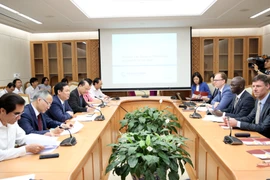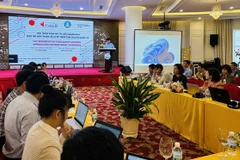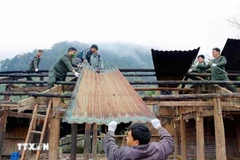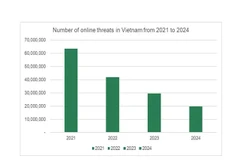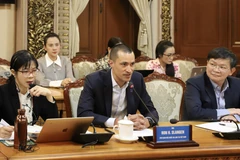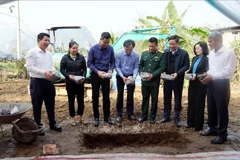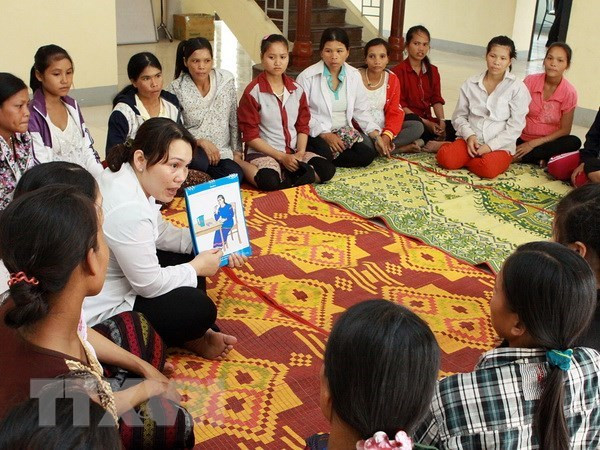 Australia and the World Bank support Vietnam’s data survey on gender. - Illustrative image (Photo: VNA)
Australia and the World Bank support Vietnam’s data survey on gender. - Illustrative image (Photo: VNA) The survey is part of the economic empowerment project forVietnamese women, performed by the General Statistics Office (GSO). It covers 6,000men and women across the country to collect dataon their daily time allocations.
Carolyn Turk, World Bank Country Directorfor Vietnam, said despite progress in improving genderequality in education, health, and economic empowerment, Vietnam still facesmany persistent challenges in gender equality.
Developing a comprehensive gender database is importantfor monitoring gender gaps and designing effective solutions to the issue, sheadded.
Vietnamestablished a set of national gender development indicators in 2011, butnearly two-thirds of them are not classified by gender. Meanwhile, there are no indicatorsrelated to the use of time.
Measuring the use of unpaid time, such as the timespent on household chores, isimportant for measuring contributions of men and women in their families, and for understanding how investments and public policiesaffecting the use of time can reduce gender gaps in the labour market and promote genderequality.
Australian Ambassador to Vietnam Robyn Mudie said oneof the main reasons why 40 percent of women are not engaged in the Vietnameselabour market is due to responsibilities of taking care of their families.
The survey will provide more data on the time forunpaid jobs and serve as a foundation for redistributing those fairly forequality and for the economy, she said.
Australia is pleased to support theVietnamese Government and the World Bank Group in conducting this survey, the ambassador added./.

